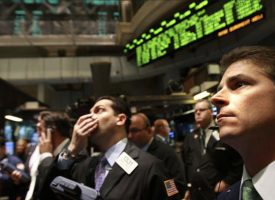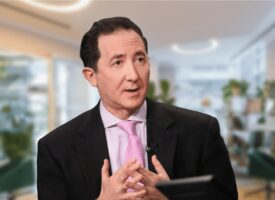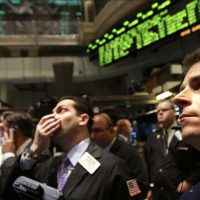Fears over the health of China’s economy kept world markets on edge this week and the country will remain in focus, along with the question of whether the Federal Reserve will raise interest rates next month.
Yahoo Finance’s Midday Movers is live each weekday at 12pm ET, covering all the latest news on the markets, the economy and the biggest stories of the day.
China’s largest banks warned of a tough year after posting their weakest half-yearly profit growth in at least six years as a slowing economy forces the lenders to make even more provisions for soured loans and squeezes interest income.
The market selloff hasn’t run its course, even with two-straight trading sessions ending sharply higher, Strategas’ Jason Trennert warns.
U.S. consumer sentiment fell in August, a survey released on Friday showed. The University of Michigan’s final August reading on the overall index on consumer sentiment came in at 91.9, down from 93.1 in July. It was lower than the survey’s preliminary reading of 92.9.
The price of oil has tumbled 58% this year to reach a six-year low earlier this week. Even if prices stay at these levels, chances are they won’t impact the Federal Reserve’s interest-rate plans.
Last week I wrote about the dangers of vacant seats at the financial regulatory agencies. Bloomberg reported this week that regulators are privately discussing giving the biggest Wall Street firms a break on rules guarding against excessive leverage. Just looking at the Chinese stock market crash, fueled by “margin trading” funded through borrowing, reveals the hazards of excessive leverage.
There are at least three core challenges facing the market: A badly broken trend, the still-dangerous winds of this volatility storm, and the Fed’s response to all the noise.
Investors pulled a record amount of money out of global equity funds in the week to Aug. 26, according to Bank of America Merrill Lynch, a measure of the alarm that China’s markets and economy have aroused around the world. The $29.5 billion outflow, including $19 billion in just one day, was the largest since the series began in 2002, surpassing any weekly outflow engendered by the collapse of Lehman
U.S. consumers increased their spending moderately in July, as wages and salaries made their biggest jump in eight months. Spending rose 0.3 percent in July, helped by purchases of big-ticket items such …












































